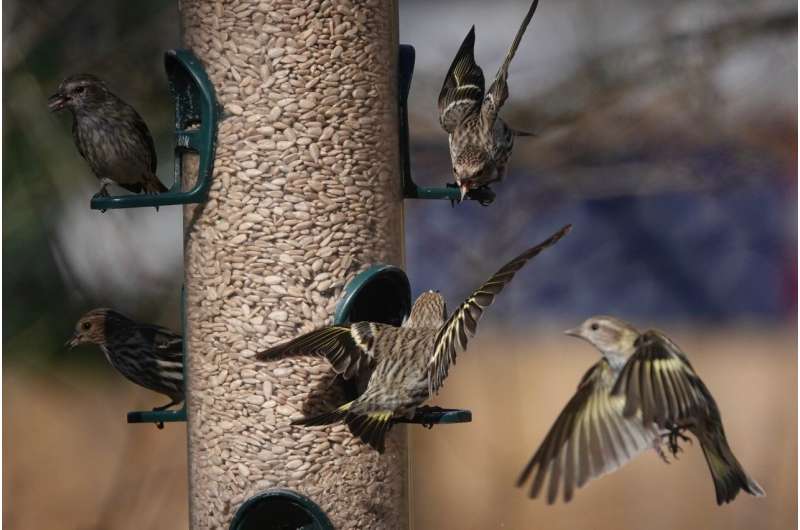This article has been reviewed according to Science X's editorial process and policies. Editors have highlighted the following attributes while ensuring the content's credibility:
fact-checked
trusted source
proofread
Expert explains why North American bird populations are declining

According to recent data, bird populations in North America have declined by approximately 2.9 billion birds, a loss of more than one in four birds since 1970. Experts say this bird loss will continue to grow unless changes are made in our daily lives.
"Habitat loss due to agricultural intensification and urbanization is arguably the biggest threat to birds, along with climate change," says Ashley Dayer, an associate professor in the College of Natural Resources and Environment and a Global Change Center affiliated faculty member at Virginia Tech. She also points to cats and window collisions playing a role in their deaths. Data shows up to one billion birds die each year after hitting windows. Cats are estimated to kill more than 2.4 billion birds annually in the U.S. and Canada.
Dayer understands the importance of birds to our environment. Her research focuses on social science applied to wildlife conservation—particularly birds. "They are often referred to as the 'canary in the coal mine,'" says Dayer. "Birds are indicators of environmental health for their own species, people, and other wildlife. They also provide many important functions like eating pests and disease vectors like mosquitoes." Her recent research also explores how their sounds and observations enrich people's lives and make them happier.
Ecological and social scientists and other conservationists are working vigorously to address the losses. "Virginia Tech and Georgetown University are playing a leading role in the Road to Recovery: Saving Our Shared Birds effort," says Dayer. In January, nearly 200 leaders in bird conservation, including Dayer, came together at the National Conservation Training Center to talk about how to change the approach to bird conservation and ensure that the population declines of over 100 "tipping point species" are reversed.
"It's critical that we improve our approach to bird conservation by all working together to do our part. From researchers to land managers to members of the public we must take action to more effectively conserve tipping point species," says Dayer. "Engaging people in the solutions is an important component to ensuring that we reverse declines in bird populations before it's too late. I watched a bird species (the Po'ouli on Maui) go extinct early in my career, and I don't want to ever experience that again."
To play your part in reversing the decline, Dayer also shares these recommendations:
- Keep cats indoors. They make great pets, but more feral and pet cats roam freely in nature. Cats instinctively hunt and kill birds, even when well fed.
- Make windows safer for birds. They perceive reflections in glass as a habitat they can fly into. Experts recommend installing screens or using film/paint to break up reflections.
- Grow native plants to make yards or land a better habitat for birds.
- Drink bird-friendly coffee to ensure tropical habitat is not lost. The coffee is certified organic, but its impact on the environment goes further than that. It is cultivated specifically to maintain bird habitats instead of clearing vegetation that birds and other wildlife rely on.
- Participate in studies about birds. Project Feederwatch and eBird provide these opportunities for the public and lead to important conservation science discoveries.
Provided by Virginia Tech




















